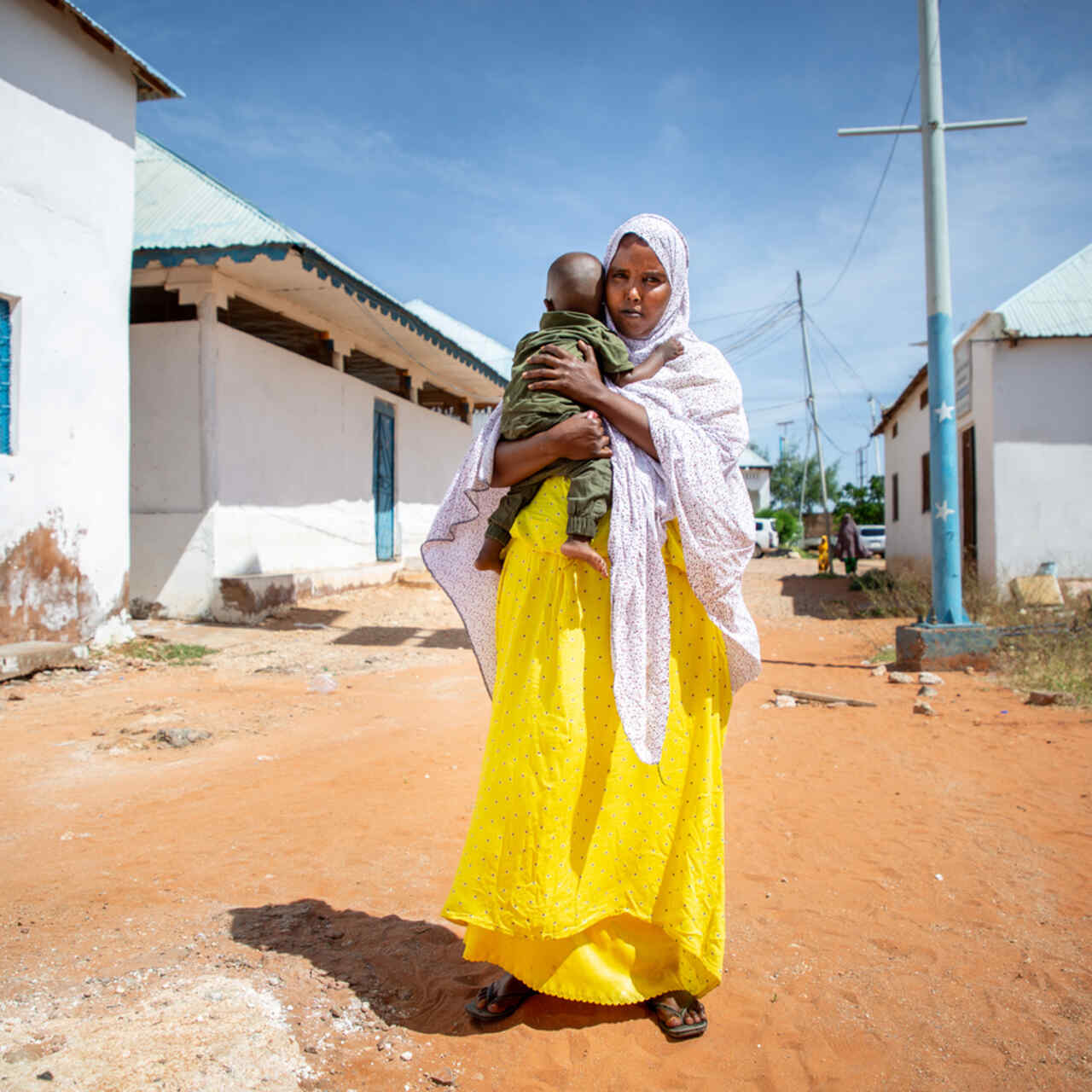
Three Somali mothers battle drought and famine
Meet Fartun, Nasteho and Halima, who are all fighting to secure a brighter future for their children in Somalia.

Meet Fartun, Nasteho and Halima, who are all fighting to secure a brighter future for their children in Somalia.
In Somalia, families are currently facing a catastrophic food crisis. This is the result of a severe and prolonged drought and decades of conflict that have destroyed crop production and made it almost impossible for herders to find food for their animals.
Unfortunately, the most vulnerable are children, with 50% of children under five in the country experiencing acute malnutrition.
Meet Fartun, Nasteho, and Halima, three mothers who are facing exceptional challenges amidst the relentless cycle of violence, drought and famine. Despite everything, they remain determined and resilient as they strive to provide their children with a better future.
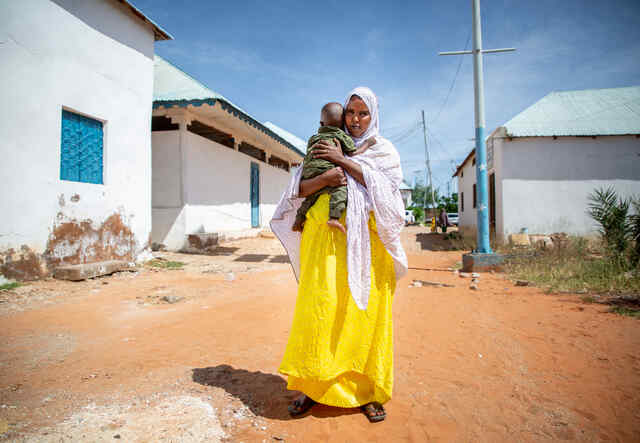
Fartun is a mother of five children who earns a living by selling tea and cigarettes. The impact of price inflation over the past few years has been immense for her. She struggles to afford food for her family when her sales are low. Unfortunately, this is a common experience in Somalia where 8.3 million people face crisis or worse levels of food insecurity. As a result, families are forced to make increasing sacrifices to ensure that they have enough food to survive.
Recently, Fartun was alarmed when Salman, her youngest child, began showing clear symptoms of severe malnutrition, including persistent diarrhea, fever, and vomiting. She knew she had to get him to the hospital fast.
“My feelings were strong. I was afraid for his health,” Fartun recalls. “I carried him to the hospital—I couldn't even wait for a vehicle.”
Arriving at the IRC-supported Hanano hospital in Dhusamareb, where she had previously given birth twice via c-section, IRC health workers quickly treated Salman and provided him with medication and nutrition support.
“I took him to the doctor and they gave him milk and provided treatment, then I stayed with him in the hospital for a week,” says Fartun. The IRC provided her with food to help speed up Salman’s recovery after he was discharged and gave him some other items to ensure he was healthy and safe at home.
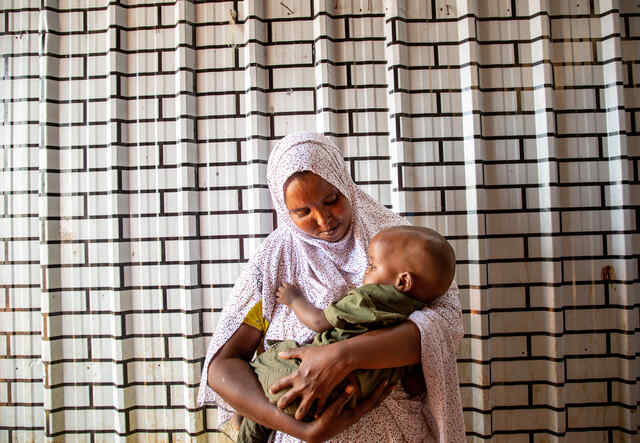
Fartun is delighted with the progress that Salman has made. He is now a healthy toddler who can consume most foods, sleep soundly throughout the night and stand up independently. “There is a big difference,” she observes. “Before, he never used to stand, even though he is a big child who should crawl and stand by now.”
After witnessing the devastating effects of malnutrition on Salman, Fartun sympathizes with the many parents in Somalia who see their children in a malnourished state. “If your child is sick and you have no means to treat him, you can understand the feeling,” she explains. “Now that he is okay, I thank God for giving him health.”
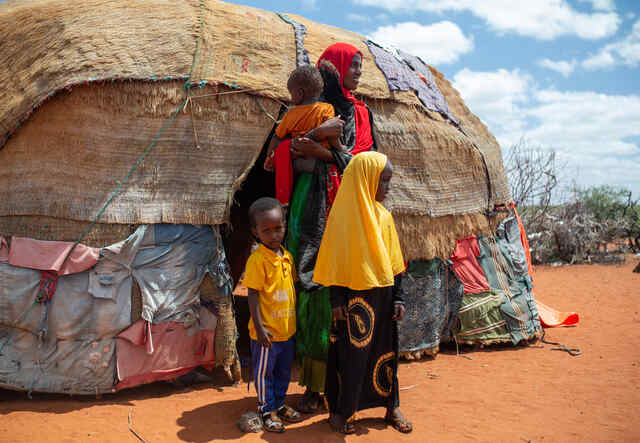
Meet Nasteho, a 25-year-old mother of three who lives in Olol, Somalia. She is also a skilled pastoralist who expertly tends to her livestock, which is her family's lifeline.
With skyrocketing food costs, Nasteho's ability to provide for her family depends on how many goats she can sell at the market. Unfortunately, the relentless drought has devastated her once-thriving herd, reducing it by a third.
“As we live in the countryside, we depend on livestock,” she explains. “We face a lot of problems when droughts hit us, as well as when the livestock market gets shut down. Because of that, we don’t have enough money.”
Nasteho's children succumbed to acute malnutrition due to the scarcity of resources in the past. "It was so disheartening to see my child suffer while I couldn't afford their treatment,” the devoted mother recalls of the helplessness she felt.
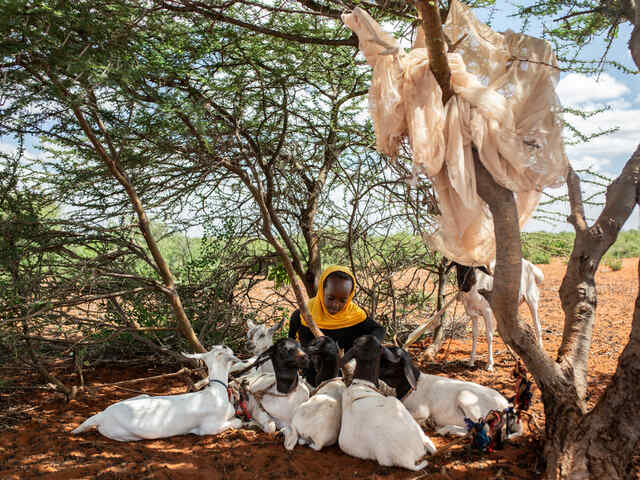
Thankfully, Nasteho learned about the IRC's programs through other mothers in the village. As a result, she can now access essential healthcare, medicine and nutritional supplements that her family needs. Her children, three-year-old Zakaria and six-year-old Leyla, are now receiving regular allocations of high-energy protein biscuits that are fortified with essential vitamins and minerals, helping to improve their overall health and wellbeing.
"They have also vaccinated my children," Nasteho adds, emphasizing that vaccination hasn’t always been a requirement in the village. Looking ahead, she hopes for Somalia to find peace, paving the way for her children to chase promising futures through education.
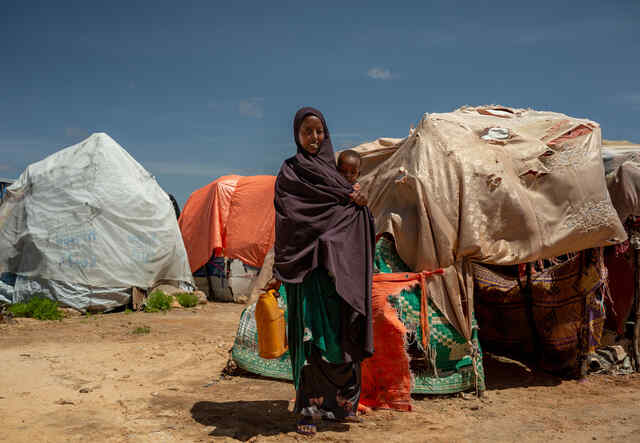
Halima, a mother of five children, has been displaced from the Bay region in Somalia due to an unprecedented drought. Her family lost all their livestock and crops, leaving them with no food or water. Like many others in the same situation, they had no choice but to abandon their home in search of basic necessities.
It was a long and arduous journey to the refugee camp in Dhusamareb. “All my animals had died and the farm could not grow anything because of the drought,” explains Halima. “I could not afford transportation fees, so we walked and felt tired and hungry.”
Halima and her family at Arlaadi camp still face challenges accessing food due to the persistent drought and escalating food prices. The Ukrainian conflict has had ripple effects on food availability and inflation globally, particularly in East Africa. This region heavily relies on Ukraine and Russia for up to 80% of its grain supply, which the war has severely impacted.
Halima and her husband used to store produce from the rainy season for future use. However, since the drought devastated their crops, they now struggle to find enough food for their family and take meals day by day.
The prolonged drought has made it harder for families like Halima's to find clean and safe water sources. The IRC built four water points (kiosks) and a 2000-meter pipeline extension in the Arlaadi camp to address this issue. These kiosks provide free access to safe and equitable drinking water. With this clean water, Halima and her family could drink, cook and bathe without any worry.
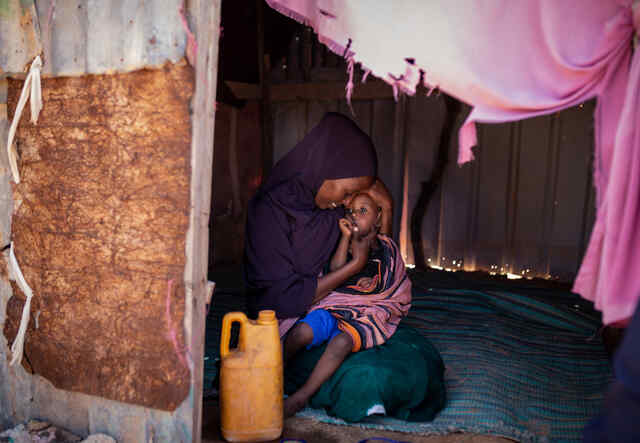
“Before the IRC brought the water, the condition of our children was bad. Their skins were cracked—dirt covered their bodies. We did not have water to bathe them. Now, our children’s skin is shining, healthy and beautiful.”
Halima dreams of a future where her children have access to nutritious meals, quality education and opportunities to thrive despite their hardships. “I would love my kids to make progress in education and get the necessary food to allow them to go to school. They can’t get an education while they are hungry.”
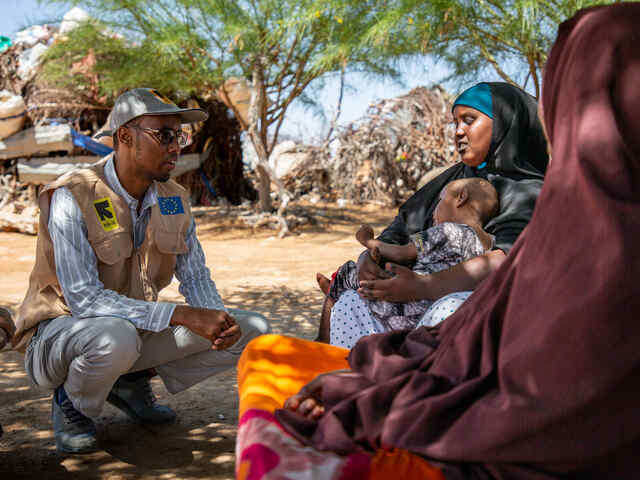
The International Rescue Committee (IRC) has been operating in Somalia since 1981, providing support to communities in Galmudug, Southwest, and Puntland states, as well as in the Banadir (Mogadishu) region. Currently, the IRC is scaling up its programs to address the current drought and increasing food insecurity, expanding to new areas to meet critical needs. We provide a range of services, including health, nutrition, water, and sanitation, as well as support for women’s protection and empowerment. Additionally, we also provide cash assistance to populations affected by the drought across the country.